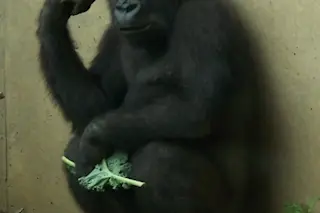While this captive gorilla noshes on fibrous veg such as kale, in the wild, the animals' diets vary seasonally, as does their microbiome. (Credit Wikimedia Commons/Ltshears) Researchers analyzing the gut microbes of gorillas and other primates found seasonal shifts that underscore just how much is missing from the modern human diet — and why it matters. Right now, you're hosting your own special ecosystem. Millions of microbes live out their lives on your skin and in every nook and cranny, especially in your gut, where they perform a multitude of essential tasks. Sort of like tiny houseguests who actually cook and clean. The microbiome — particularly the mini-cities in your gut — has been a popular research focus of late as scientists investigate what it can tell us about health, behavior and even human evolution. Researchers probing the poop of 87 wild western lowland gorillas in the Republic of Congo ...
What Gorilla Poop Reveals About Our Own Lousy Diets
Discover how the gut microbiome varies with seasonal shifts in diet, revealing impacts on human health and behavior.
More on Discover
Stay Curious
SubscribeTo The Magazine
Save up to 40% off the cover price when you subscribe to Discover magazine.
Subscribe













